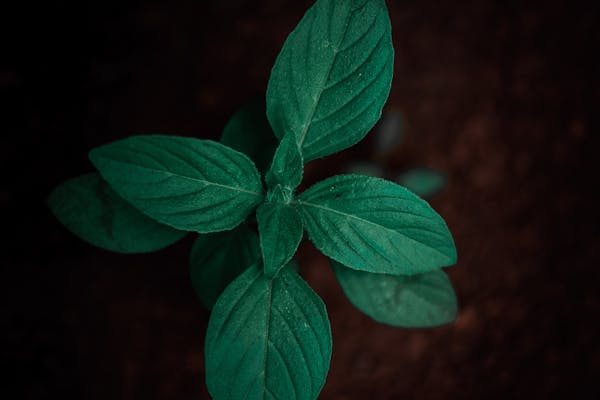The increasing interest in natural remedies has led many to explore the healing potential of various medicinal plants. One such herb that has garnered significant attention is the Rauvolfia serpentina, commonly known as serpentina. This plant, native to South and Southeast Asia, has a rich history of use in traditional medicine, particularly in Ayurvedic and traditional Chinese medicine. Serpentina is revered for its wide array of health benefits, which have been supported by both anecdotal evidence and emerging scientific research. In this article, we will explore the health benefits of serpentina plant, how it works, and its potential uses in modern healthcare.

Introduction to Serpentina Plant
Serpentina is a perennial shrub that belongs to the Apocynaceae family. The plant typically grows in tropical regions, with its most notable species being found in India, Thailand, and Indonesia. The name “serpentina” is derived from the plant’s traditional use in treating snakebites, a practice that dates back hundreds of years.
The plant’s most prominent feature is its alkaloid-rich roots, which are used in various medicinal preparations. Among these alkaloids is reserpine, a compound that has been extensively studied for its antihypertensive and sedative properties. Despite its ancient uses, modern science continues to uncover new potential applications for serpentina, making it an exciting subject of study in both pharmacology and natural medicine.
Overview of Alkaloids in Serpentina
Before delving into the health benefits of serpentina plant, it’s important to understand the key bioactive compounds that give this plant its medicinal value. Serpentina contains numerous alkaloids, with reserpine being the most prominent. Other notable alkaloids include ajmaline, ajmalicine, serpentinine, and yohimbine. These compounds have various physiological effects on the body, which account for many of the therapeutic benefits associated with serpentina.
Reserpine, for example, acts as an antihypertensive agent by depleting catecholamines from the nerve endings. Ajmalicine has vasodilatory effects, which improve blood flow, and yohimbine is often used for its stimulant and aphrodisiac properties. Each of these compounds plays a unique role in promoting health, which we will explore in the following sections.
Health Benefits of Serpentina Plant
1. Management of High Blood Pressure
One of the most widely recognized health benefits of serpentina plant is its ability to lower high blood pressure (hypertension). Serpentina’s antihypertensive effects are primarily attributed to reserpine, which works by relaxing the blood vessels and reducing the heart rate. This makes it easier for blood to flow through the arteries, thereby lowering overall blood pressure.
Studies have shown that reserpine works by depleting stores of norepinephrine and dopamine in the brain, which leads to a decrease in sympathetic nervous system activity. This reduces the constriction of blood vessels and lowers blood pressure over time. In fact, reserpine was one of the first antihypertensive agents to be used in modern medicine and remains a valuable treatment option in certain cases of resistant hypertension.
Despite its effectiveness, reserpine is not without side effects, and its use has declined in favor of newer drugs with fewer adverse reactions. However, the potential of serpentina to naturally lower blood pressure continues to be a point of interest for researchers looking for alternative treatments for hypertension.
2. Anxiety and Stress Reduction
Another key health benefit of serpentina plant is its ability to reduce anxiety and stress. Traditional medicine practitioners have long used serpentina as a sedative to calm the nervous system and relieve tension. This effect is largely due to the presence of reserpine, which modulates the levels of neurotransmitters in the brain, including serotonin, norepinephrine, and dopamine.
Reserpine depletes these neurotransmitters, which may help alleviate symptoms of anxiety by reducing nervous excitement. Although modern medicine now favors other treatments for anxiety, serpentina remains a valuable option for those seeking natural remedies.
It’s important to note that while serpentina has shown potential in calming anxiety, prolonged or excessive use can lead to depressive symptoms due to its impact on serotonin and dopamine levels. Therefore, individuals should use it under the guidance of a healthcare provider.
3. Improved Digestion
Serpentina has been traditionally used to treat a variety of gastrointestinal issues, including indigestion, constipation, and bloating. The plant’s alkaloids have antispasmodic properties, which help relax the muscles of the digestive tract and promote smoother digestion.
In traditional Ayurvedic practices, serpentina is often prescribed to alleviate symptoms of dysentery, diarrhea, and other digestive complaints. While scientific studies in this area are still limited, the plant’s historical use provides promising evidence of its effectiveness in promoting healthy digestion.
4. Treatment for Insomnia
One of the lesser-known health benefits of serpentina plant is its use as a treatment for insomnia. For centuries, traditional medicine practitioners have recommended serpentina for individuals struggling with sleep disorders due to its calming and sedative properties.
The sedative effects of serpentina can be attributed to its action on the central nervous system. By depleting norepinephrine and dopamine, serpentina induces a state of relaxation, making it easier for individuals to fall asleep. Some studies suggest that serpentina may also increase the length and quality of sleep, making it a potential natural alternative to pharmaceutical sleep aids.
It’s worth noting that while serpentina may help with occasional insomnia, long-term use should be approached with caution, as it can lead to unwanted side effects, including lethargy and depression.
5. Anti-inflammatory and Pain Relief Properties
Serpentina has been traditionally used to treat inflammation and pain, particularly in conditions such as arthritis and joint pain. The plant’s alkaloids have been found to possess anti-inflammatory properties that help reduce swelling and alleviate discomfort in inflamed tissues.
Moreover, serpentina is believed to act as an analgesic, providing relief from pain. This makes it a potentially valuable treatment for conditions that involve chronic inflammation, such as rheumatoid arthritis. However, more research is needed to fully understand the mechanisms behind serpentina’s anti-inflammatory and pain-relieving effects.
6. Management of Mental Health Conditions
Beyond its effects on anxiety and stress, serpentina has been explored for its potential use in managing more serious mental health conditions, including schizophrenia and psychosis. The plant’s active compound, reserpine, was one of the first antipsychotic drugs used in the treatment of schizophrenia.
Reserpine works by depleting neurotransmitters in the brain, which can help reduce the symptoms of psychosis, such as hallucinations and delusions. However, the use of reserpine in modern psychiatry has declined due to the development of newer drugs with fewer side effects. Despite this, serpentina’s historical use in treating mental health conditions remains a point of interest for researchers exploring alternative treatments.
7. Potential Anti-Cancer Properties
Emerging research suggests that serpentina may have potential anti-cancer properties, though this area of study is still in its early stages. Some studies have indicated that the alkaloids found in serpentina may inhibit the growth of certain cancer cells, particularly in breast and prostate cancers.
The plant’s anti-inflammatory and antioxidant properties are believed to play a role in its potential to prevent cancer cell proliferation. However, more research is needed to confirm these findings and determine the safety and efficacy of serpentina as an anti-cancer treatment.
8. Blood Sugar Regulation
Some traditional medicine systems have used serpentina to help manage blood sugar levels, making it a potential natural treatment for individuals with diabetes. The plant’s alkaloids may help regulate insulin secretion and improve glucose metabolism, though scientific studies in this area are limited.
Nevertheless, anecdotal evidence from traditional medicine practitioners suggests that serpentina may be a valuable tool in the management of diabetes. However, individuals with diabetes should consult with their healthcare provider before using serpentina, as it may interact with other medications.
9. Detoxification and Liver Health
The health benefits of serpentina plant also extend to detoxification and liver health. In traditional medicine, serpentina has been used to cleanse the body of toxins and promote healthy liver function. The plant’s alkaloids may support the liver’s ability to filter out harmful substances and improve overall liver health.
Serpentina’s role in detoxification is still being studied, but its use in traditional medicine suggests that it may have potential as a natural remedy for liver-related conditions.
Dosage and Usage
When it comes to the health benefits of serpentina plant, the dosage and method of consumption play a critical role in its effectiveness. In traditional medicine, serpentina is commonly prepared as a powder, tincture, or tea, depending on the condition being treated.
For hypertension, anxiety, and insomnia, serpentina is typically taken in small, controlled doses to avoid side effects. It’s important to note that high doses of serpentina can lead to undesirable side effects, including depression, fatigue, and gastrointestinal issues. Therefore, individuals should always consult with a healthcare provider before using serpentina, especially if they are taking other medications.
In modern medicine, reserpine is still available as a prescription medication, though its use has declined in favor of newer treatments. However, the interest in serpentina as a natural remedy continues to grow, particularly among those seeking alternatives to pharmaceutical drugs.
Potential Side Effects and Precautions
While the health benefits of serpentina plant are numerous, it’s important to be aware of the potential side effects and risks associated with its use. The most common side effects of serpentina include:
- Depression: Due to its impact on neurotransmitter levels, serpentina can cause symptoms of depression in some individuals, particularly with long-term use.
- Fatigue and Lethargy: The sedative effects of serpentina can lead to excessive drowsiness and lethargy, especially when taken in high doses.
- Gastrointestinal Issues: Some individuals may experience nausea, vomiting, or diarrhea when taking serpentina.
- Low Blood Pressure: While serpentina is effective in lowering high blood pressure, it can also cause blood pressure to drop too low in some individuals, leading to dizziness or fainting.
Given these potential side effects, individuals should use serpentina with caution and under the guidance of a healthcare provider. Pregnant and breastfeeding women should avoid using serpentina, as its safety during pregnancy has not been well studied.
Conclusion
The health benefits of serpentina plant make it a powerful natural remedy with a wide range of applications. From managing high blood pressure and reducing anxiety to promoting better digestion and improving liver health, serpentina offers numerous therapeutic benefits. However, like all medicinal plants, serpentina should be used with care and under the supervision of a healthcare professional to avoid potential side effects.
As research continues to explore the healing potential of serpentina, it is clear that this ancient plant still holds great promise in the realm of natural medicine. Whether used as a supplement to modern treatments or as a standalone remedy, serpentina remains a valuable tool for promoting health and wellness in the modern world.







